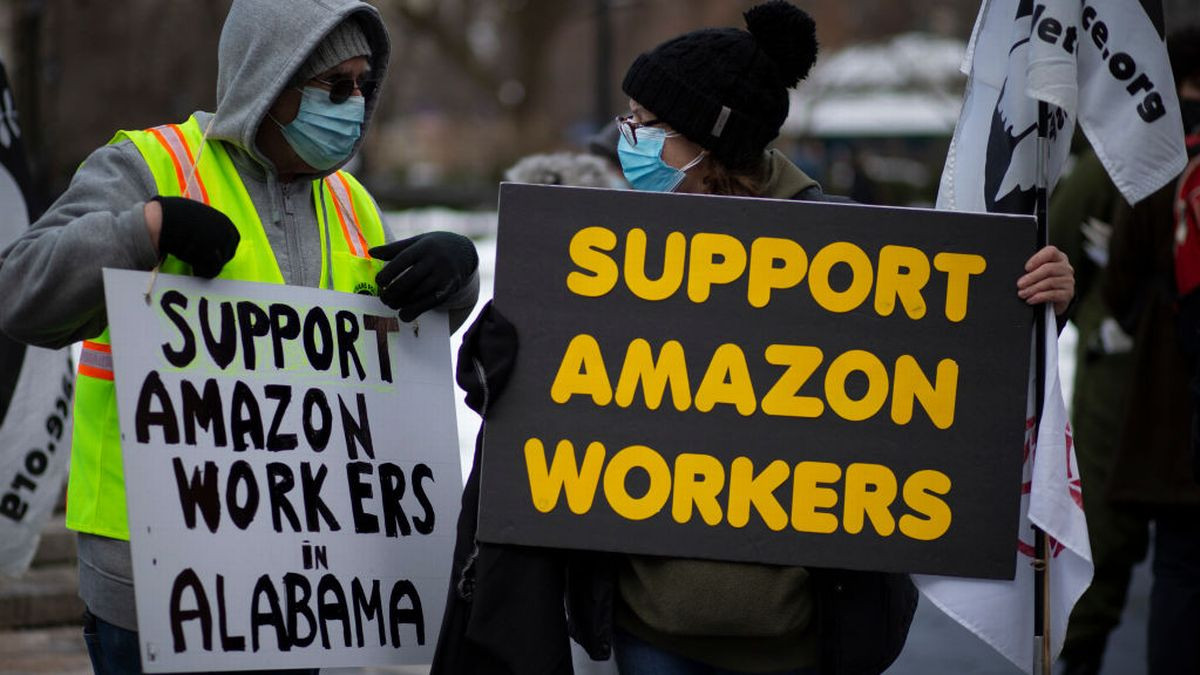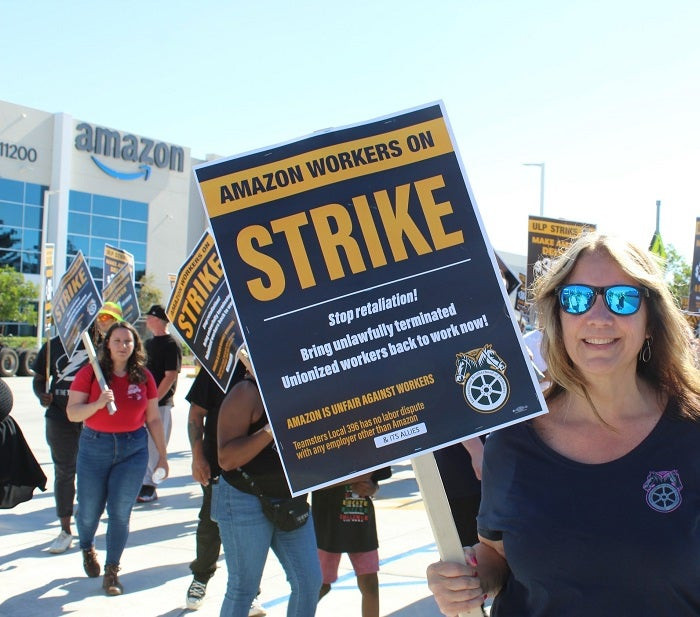Amazon Strike: Impact on Canadian Holiday Deliveries?
As Amazon workers at several U.S. facilities launched a strike, Canadian shoppers naturally wondered about potential disruptions to their holiday deliveries. The International Brotherhood of Teamsters union, representing approximately 10,000 Amazon workers, initiated strike action at seven U.S. facilities following a December 15th deadline for contract negotiations. While this represents a small fraction of Amazon's 1.5 million employees, the impact on deliveries, especially during the peak holiday season, remained a key concern.
Amazon's Response: 'No Impact' to Canadian Operations
When questioned about potential delivery delays to Canada due to the U.S. strike, Amazon Canada firmly stated that there is "no impact" to its Canadian operations, including deliveries. Kelly Nantel, a national spokesperson for Amazon Canada, emphasized the company's commitment to fulfilling holiday orders, reiterating their appreciation for their team's efforts. This claim of 'no impact' was despite reporting by the Associated Press that the strike was the largest against the company in U.S. history.
Dispute Over the Nature of the Strike
However, the narrative surrounding the strike became more complex due to conflicting claims about the nature of the industrial action. While the Teamsters union characterized the action as a strike affecting thousands of Amazon employees and drivers, Nantel refuted this, arguing that workers directly employed by Amazon are not involved and that those striking are "almost entirely outsiders." Nantel added that the union has employed "illegal" tactics, including "threatened, intimidated, and attempted to coerce Amazon employees and third-party drivers". Amazon's assertion that the drivers represented by the Teamsters are not its employees, as they work for third-party Delivery Service Partners (DSPs), further complicates the issue. The Teamsters countered that Amazon should be held responsible as the company dictates drivers' duties.
The Role of Delivery Service Partners (DSPs)
The involvement of Delivery Service Partners (DSPs) is a critical element in understanding the potential impact, or lack thereof, on Canadian deliveries. As Reuters reported in September, most of Amazon's deliveries are handled by these independent businesses. Amazon's increased compensation to DSPs in September, aimed at boosting driver earnings, suggests that the company is acutely aware of the pressure to maintain reliable delivery services despite the complexities of its logistics network. The company’s increase in compensation underscores the company’s acknowledgement of the delicate balance between maintaining costs and ensuring smooth deliveries to customers during the crucial holiday shopping season. It’s a complex balancing act, particularly in light of the ongoing labor disputes and their potential ripple effects across the supply chain.
Amazon's Efforts to Control the Narrative
Despite the union’s claim that the strikes are impacting fulfillment centers across the United States, Amazon representatives consistently denied that a strike is actually taking place. The company instead has framed the situation as a case of the Teamsters union’s attempts to exert pressure and expand their influence through intimidation. The union, however, insists that it is fighting for better working conditions and a fairer contract for its members, using the holiday shopping rush to apply maximum leverage. This conflict of narratives complicates an already multifaceted story and makes it challenging for consumers to fully grasp the situation and the potential impact of the strike on their own shopping experiences.
The Broader Implications of the Strike
The Amazon strike highlights the ongoing tension between labor and large corporations, particularly in the e-commerce sector. The demand for speed and efficiency during the holiday shopping season magnifies these tensions, raising concerns about worker rights and working conditions within complex supply chains. This labor dispute, with its potential transborder consequences, raises important questions regarding fair labor practices and the need for robust regulatory frameworks, particularly within the global e-commerce industry, ensuring workers' rights and fair treatment are prioritized. The situation also serves as a reminder of the interconnectedness of global commerce and the ease with which industrial disputes in one country can potentially affect consumers and businesses in other regions.
The Future of Labor Relations in E-commerce
The outcome of this dispute will likely have significant implications for future labor negotiations, not only within Amazon but also for other companies within the e-commerce sector. It could set a precedent for future labor actions and force a reevaluation of the relationship between large companies, independent contractors, and their workforce. Furthermore, this situation serves as a potent example of the increasing visibility and impact of labor organizing efforts in the digital age, highlighting the changing dynamics of work in a globalized economy. This event will undoubtedly be scrutinized by labor organizations and business leaders across the world as a crucial case study in 21st-century labor relations.
A Holiday Season Under Scrutiny
Ultimately, the situation's impact on Canadian consumers remains minimal according to Amazon, though the conflicting information complicates matters. While Amazon maintains its commitment to holiday delivery, the strike and the accompanying narrative battle raise questions about the transparency and accountability of major corporations in their dealings with workers and their communications to the public. The holiday season, traditionally marked by celebration and cheer, is thus marked by tension and uncertainty, underscoring the interconnected nature of labor relations, corporate responsibility, and consumer experience within the modern global marketplace.


















